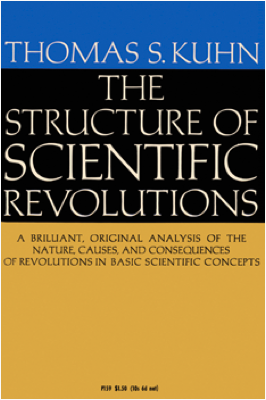Following Karen Armstrong’s remarks on idols, I’ve been thinking about idolatry in relation to our view of nature. We are wedded to the view that nature lacks mind–to the extent that alternatives to this view, from pantheism to animism, are considered nuts. Could this be a present-day form of mistaking human notions for the absolute?
Here’s how I see it. Back in the seventeenth century Descartes and other philosophers taught Europeans to regard nature as a machine. Mind and matter, which before Descartes’s time were joined, from that time on went separate ways. Today we regard mind and matter as so utterly divorced that philosophers and biologists alike have a hard time figuring out how they can interact at all.
Descartes declared that mind and matter were separate because he saw that the physical world acts in some predictable ways, and so the old “God” explanation was no longer needed. Before his time, people attributed motion to God (or mind, or soul–all synonyms at the time). How else could you explain, for example, the movements of planets?
Descartes saw–initiating the scientific revolution–that physical bodies move because forces are applied to them. He made the revolutionary move of ascribing motion to bodies rather than to souls.
In kicking mind or soul out of the picture, Descartes initiated the paradigm of “nature as machine,” which has dominated Western science and culture since then.
For four hundred years we have lived with the paradigm that mind and matter are separate, which most of us most of the time take to be the truth about the natural world. But Thomas Kuhn, in his famous book The Structure of Scientific Revolutions, reminded readers that all paradigms are merely models of nature, not nature itself. Every paradigm is by definition limited, said Kuhn; it leaves out some things in order to focus on others. And so, said, Kuhn (p. 94), a paradigm choice is just that—a choice.
As in political revolutions, so in paradigm choice—there is no standard higher than the assent of the relevant community. . . . Paradigm choice can never be unequivocally settled by logic and experiment alone.
It doesn’t mean paradigms are irrational, only that they are made up of things besides evidence–things like the values of the relevant community, which lie outside the bounds of science. The bottom line, according to Kuhn, is that there is no irrefutable proof to support the choice of one paradigm over another.
It’s helpful to keep this in mind when thinking about Descartes’s paradigm. Viewing matter as devoid of mind is a paradigm choice. It’s not an irrefutable fact about the world. It is a useful model that has made possible incredible technological advances–like the communication we’re using now.
But it also has a serious downside. It has led us to the brink, perhaps beyond, of ecological disaster. When nature is a machine–when mind, or the highest form of it, belongs to humans alone–then stones, trees, and streams become mere objects of human tinkering. We can plunder the earth’s resources with impunity, treating creeks and mountaintops in Kentucky or rivers in India or forests in northwest North America as if they existed only for economic development. Systems of land and river become inert chunks of lifeless mud or mechanical runs of H2O rather than living, breathing bodies upon which we and every other creature depend for our very survival.
Not to mention the disdain, even hostility, with which we view people who disagree with this paradigm. And here’s where we get back to idolatry. If idolatry is mistaking human notions for reality “as it is,” then Western culture, both secular and religious, is elevating Descartes’s paradigm to the level of an idol. To label as superstitious, ignorant, or stupid those who choose a different model is to perpetuate the worst kind of idolatry, the arrogant kind.
Idolatry and arrogance—close cousins throughout human history, the one an error of perception and the other the intolerance that flows so easily from mistaking one’s own, limited, view for Truth.
For an alternative to Descartes, see the Stanford Encyclopedia of Philosophy on panpsychism.